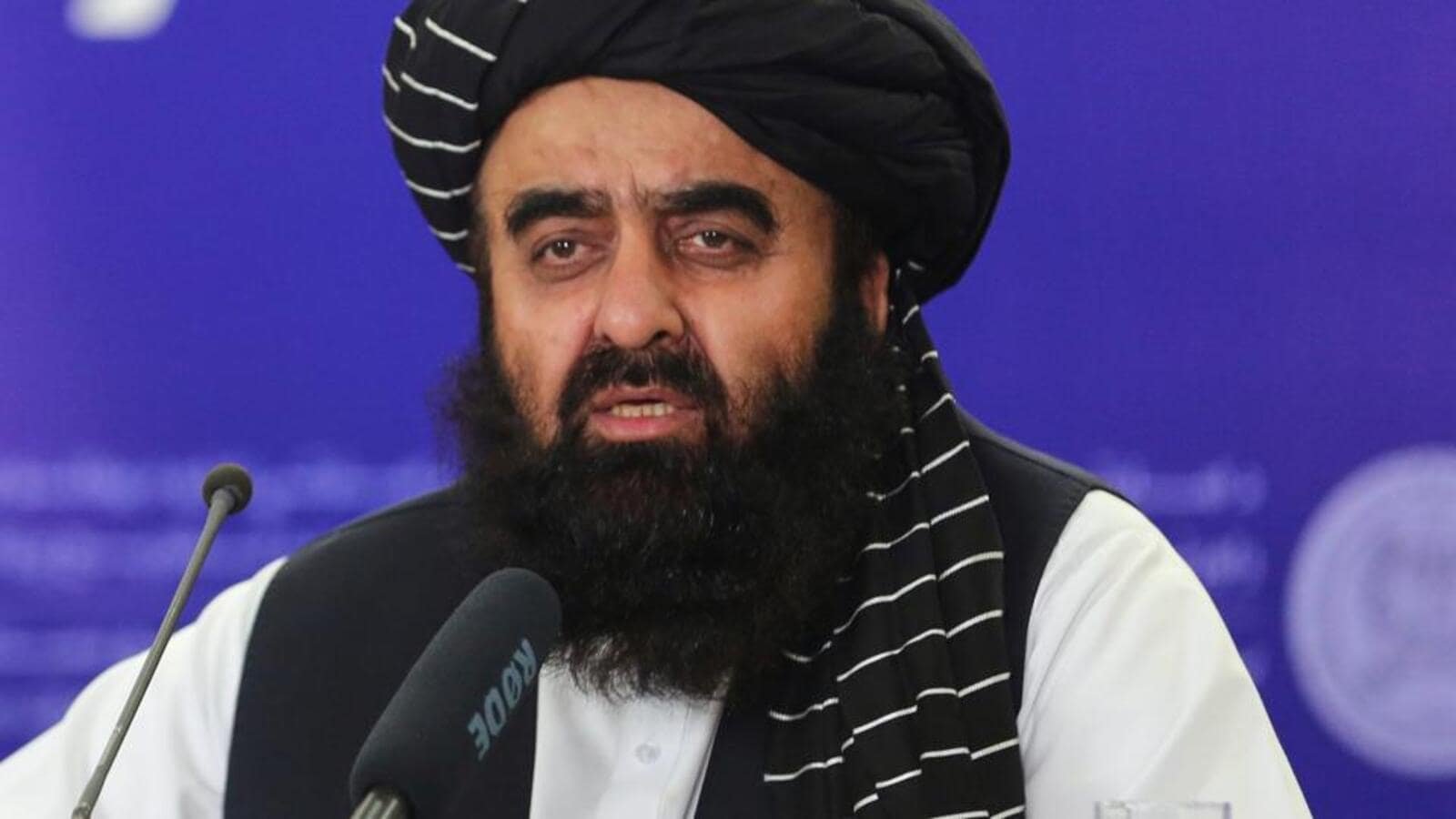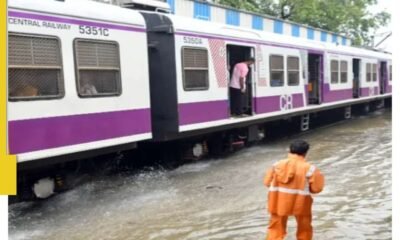Travel Guides & Articles
Kashmir travel plans unravel as cancellations surge | Mumbai news

MUMBAI: A day after the terror attack in Pahalgam, vacationers are already cancelling travel plans to Jammu & Kashmir. An idyllic destination for tourists, especially during summer vacations, J&K is being struck off the bucket list of many – for now, at least.
The Maharashtra Tour Organisers’ Association claims as many as 5-7 lakh tourists from Maharashtra alone head to J&K every weekend during summer. While small groups cater to 20-30 tourists, larger operators accommodate 100 tourists per trip.
“Tourism had revived after the abrogation of Section 370 in 2019, and was booming lately. It is hard to say whether Tuesday’s attack will have a long-term impact but, for now, clients are cancelling their bookings for Jammu & Kashmir for the next 15 days,” said Dilip Yadav of Tulip Holidays, a member of the association.
Apart from Pahalgam, other popular locations in the Kashmir Valley, such as Gulmarg, have shut their doors to visitors in the wake of the attack. “Pahalgam became a tourist hot spot thanks to social media influencers,” said another tour operator.
While acknowledging the human tragedy in Pahalgam, many tourists looking forward to a memorable vacation in the Valley are either cancelling or reconsidering their plans. “My sister-in-law from Pune was to leave for a week-long trip to Kashmir with a group of eight on Tuesday. Their flights were booked and accommodation arrangements made. Now she has decided not to go,” said Madhu Awasti, a Navi Mumbai resident.
A women’s travel group from Vashi was on the verge of finalising bookings for an eight-day trip covering Srinagar and Pahalgam in May. “On Monday, I checked flight rates to Kashmir and was ready to book. Now we’ve decided to wait,” said Bhavna Bhatia, a group member and frequent traveller to Kashmir since 2011. This is the first time Bhatia is cancelling a trip to the Valley. “I’m now hoping to go in November, provided the situation stabilises,” she added.
For the Quadri family from Jogeshwari, a trip to Kashmir was to be the perfect escape from Mumbai’s scorching summer. The five-member family had locked their itinerary, but Tuesday’s attack has prompted them to reconsider. “We were to travel at month-end and had a budget of ₹50,000 per person. Now we have shelved our plans. We’ll probably stretch the budget and opt for an international destination, possibly Thailand,” said Suleiman Quadri.
But what of tourists who are already in the Valley? Tour companies say they have had to make last-minute changes in their itineraries for their clients. According to Veena Patil, who owns Veena World, “Many want to cancel and come back.”
Patil said some of her clients who were already in Kashmir had to improvise. “The area (in Pahalgam) is cordoned off. As a result, tourists are heading for Sonmarg and Srinagar. Hotel rooms are unavailable in Srinagar,” she said.
Shailesh Patil of Kesari Travels said his company had not had any cancellations but his clients were worried. “We had four groups in Pahalgam. They will complete their tours and return to Srinagar.’’
Vishwajeet Patil of Raja Rani Travels, revealed, “With no entry into Pahalgam, we are receiving many requests to cancel advance bookings for trips to Kashmir, but we are asking our clients to reconsider. Besides, we have paid hotel and cab owners for future tours. Locals also want to return to normalcy,” Patil said.
Prabhulal Joshi, who owns Heena Tours, said his company too was flooded with cancellations. “Many have sought cancellations. Some want to travel to other destinations.’’
Meanwhile, the Union tourism ministry issued a directive to all tourism service stakeholders to waive cancellation fees and provide the necessary support to ease travel disruptions due to the Pahalgam attack. Addressed to major online travel aggregators, travel agencies, tour operators, hoteliers and transport providers, the ministry requested immediate support and cooperation.
The letter, signed by Secretary (Tourism) V Vidyavathi, specifically named platforms such as MakeMyTrip, Yatra, Goibibo, ClearTrip, EaseMyTrip, Ixigo, Airbnb, Agoda, Thrillophilia, Booking.com and Expedia, along with tourism and hospitality industry associations.
Travel Guides & Articles
Taliban minister planned India visit; Pak-led UN panel rejects travel ban waiver

NEW DELHI: Taliban foreign minister Amir Khan Muttaqi called off a planned visit to India this month after failing to secure a waiver to a travel ban imposed under UN Security Council sanctions, people familiar with the matter said.
If the visit had gone ahead, Muttaqi would have been the first minister from the Taliban setup in Kabul to travel to India since the group seized power in Afghanistan after the collapse of the Ashraf Ghani government in August 2021. All Taliban leaders sanctioned by the UN Security Council have to secure a waiver for foreign travel.
Pakistan currently heads the 1988 sanctions committee of the UN Security Council that oversees the implementation of the travel ban, an assets freeze, and an arms embargo related to sanctioned Taliban leaders, and the people cited above said on condition of anonymity that Islamabad is believed to have been behind the move to deny Muttaqi a waiver.
Also Read: Trump says India, Russia ‘lost’ to ‘darkest China’. New Delhi says no comments
The 1988 sanctions committee includes all 15 members of the Security Council, and a waiver can be blocked if even one member objects to it. Muttaqi’s planned visit to Pakistan last month was called off after the US reportedly objected to a waiver.
When external affairs ministry spokesperson Randhir Jaiswal was asked at a weekly media briefing about reports of Muttaqi’s planned visit to India, he replied: “As you are aware, we have longstanding ties with the people of Afghanistan. India continues to support the aspirations and developmental needs of the Afghan people.
“We continue to have engagements with Afghan authorities. If there is an update on this account, we will share it with you.”
The people said a waiver for Muttaqi was sought from the 1988 sanctions committee but it wasn’t granted. The planned visit to India was being seen as a follow-up to a phone call between Muttaqi and external affairs minister S Jaishankar in May – the first such interaction between the two sides.
Also Read: India will ‘undoubtedly’ keep buying Russian oil, says Nirmala Sitharaman
The phone conversation also built on a meeting between Muttaqi and foreign secretary Vikram Misri in Dubai in January and came against the backdrop of tensions between India and Pakistan. The Taliban had also condemned the Pahalgam terror attack in April.
India has quietly built up its contacts with the Taliban leadership in recent years, mainly to protect regional interests at a time when China has sought to expand its footprint in Afghanistan, and Muttaqi and Jaishankar had spoken on the phone again on September 1 after New Delhi dispatched relief materials to help the victims of a devastating earthquake that struck the Afghan province of Kunar.
The people said that Muttaqi’s visit had only been called off, and it is expected to go ahead in the coming months once the issue of the waiver on the travel ban is addressed.
Travel Guides & Articles
North East Aviation summit boosts regional growth

The Ministry of Civil Aviation organised the North East Region Ministers’ Conference on Civil Aviation 2025 and the 3rd North East Aviation Summit in Itanagar, Arunachal Pradesh. The event brought together key leaders including Shri Pema Khandu, Chief Minister of Arunachal Pradesh, as Chief Guest, and Shri Rammohan Naidu, Union Minister for Civil Aviation, as Guest of Honour. Senior ministers from Mizoram, Sikkim, and Assam also participated, reflecting the collective importance given to aviation-led development in the region.
In his inaugural address, Shri Pema Khandu highlighted the critical role of transportation connectivity in driving growth in the North East. He noted that in the last decade, the region has witnessed unprecedented progress in aviation infrastructure. With schemes like UDAN, long-cherished dreams of Arunachal Pradesh residents to have their own airports have been fulfilled, transforming the socio-economic landscape of the state and the broader region.
Union Minister Shri Rammohan Naidu stressed the importance of strengthening Centre-State-Industry partnerships to accelerate aviation growth. He emphasised that enhanced connectivity is vital for border access, tourism promotion, cargo movement, and industrial development. The Minister urged states to expand tourism infrastructure and skilling programs to complement aviation growth, noting that employment opportunities for youth must be prioritised alongside infrastructure expansion.
The Minister shared that operational airports in the region have increased from nine in 2014 to sixteen at present. Aircraft movements have nearly doubled, while domestic passenger traffic has tripled. To support further expansion, the Centre will offer four pre-feasibility studies annually for new Greenfield airports at no cost, enabling states to plan their aviation projects without financial constraints.
During discussions, state leaders highlighted how aviation connectivity will strengthen tourism, trade, healthcare, emergency services, and entrepreneurship. They underscored the role of new airports, heliports, and cargo facilities in reducing travel time, boosting exports of local products, and attracting investments. Industry players, including airlines, OEMs, MROs, cargo operators, and drone companies, engaged in dialogues to identify investment opportunities and address implementation challenges.
Looking ahead, the Ministry announced its flagship event Wings India 2026, scheduled from 28–31 January 2026. Organized with AAI and FICCI, the event will serve as a global platform to showcase India’s aviation growth story, promote policy dialogue, and foster international partnerships. With these initiatives, civil aviation is set to become a transformative enabler of Viksit Bharat @2047, giving new wings to North East India’s aspirations.
Travel Guides & Articles
Opportunities and Challenges for Travel Agents in India Post-GST Reforms, ETHospitalityWorld

The recent GST reforms announced at the 56th GST Council meeting are set to reshape the travel and tourism industry in India, with travel agents standing at the center of both opportunities and challenges.
For hotel accommodation priced up to Rs 7,500 per day, the GST rate has been reduced from 12 percent with input tax credit (ITC) to 5 percent without ITC. While this move makes travel more affordable for consumers, it poses challenges for travel agents who lose ITC benefits, potentially compressing margins.
Non-economy class air travel has seen its GST rate increased from 12 percent with ITC to 18 percent with ITC. This change will result in higher fares for business travelers, yet travel agencies serving corporate clients can still claim full ITC, ensuring better cash flow management.
One of the most significant developments is the amendment of Section 13(8)(b) of the IGST Act, which now allows services provided by travel agents and tour operators to foreign clients to qualify as exports. This recognition not only enables agencies to avail zero-rated benefits under GST, including refunds of input tax credit, but also strengthens their ability to compete globally.
The motor vehicle transport sector has also undergone changes. The GST rate remains at 5% without ITC, but for those opting for full ITC, the rate has risen from 12 to 18 percent. This provides flexibility but also calls for agencies to carefully evaluate their business models.
Commenting on the reforms, Jyoti Mayal, chairperson of the Tourism and Hospitality Skill Council, said: “The latest GST reforms bring both relief and responsibility for travel agents. On one hand, reduced hotel tariffs will stimulate demand in the domestic tourism segment. On the other, the removal of ITC in this category will require agents to realign their pricing strategies. Most importantly, the recognition of intermediary services as exports is a game-changer, unlocking opportunities for Indian travel businesses to expand their global footprint while enjoying the benefits of zero-rated taxation. luxury travel is as important and needs to be promoted more as the returns are higher spends are higher it is exclusive travel and india needs to focus in the same for inbound and be more competitive than the neighbouring countries”As the sector adapts to these changes, the emphasis will be on balancing consumer affordability with sustainable business models, ensuring that Indian travel agents remain competitive both domestically and internationally.
-

 Business1 week ago
Business1 week agoThe Guardian view on Trump and the Fed: independence is no substitute for accountability | Editorial
-
Tools & Platforms3 weeks ago
Building Trust in Military AI Starts with Opening the Black Box – War on the Rocks
-

 Ethics & Policy1 month ago
Ethics & Policy1 month agoSDAIA Supports Saudi Arabia’s Leadership in Shaping Global AI Ethics, Policy, and Research – وكالة الأنباء السعودية
-

 Events & Conferences4 months ago
Events & Conferences4 months agoJourney to 1000 models: Scaling Instagram’s recommendation system
-

 Jobs & Careers2 months ago
Jobs & Careers2 months agoMumbai-based Perplexity Alternative Has 60k+ Users Without Funding
-

 Education2 months ago
Education2 months agoVEX Robotics launches AI-powered classroom robotics system
-

 Funding & Business2 months ago
Funding & Business2 months agoKayak and Expedia race to build AI travel agents that turn social posts into itineraries
-

 Podcasts & Talks2 months ago
Podcasts & Talks2 months agoHappy 4th of July! 🎆 Made with Veo 3 in Gemini
-

 Podcasts & Talks2 months ago
Podcasts & Talks2 months agoOpenAI 🤝 @teamganassi
-

 Education2 months ago
Education2 months agoMacron says UK and France have duty to tackle illegal migration ‘with humanity, solidarity and firmness’ – UK politics live | Politics





















